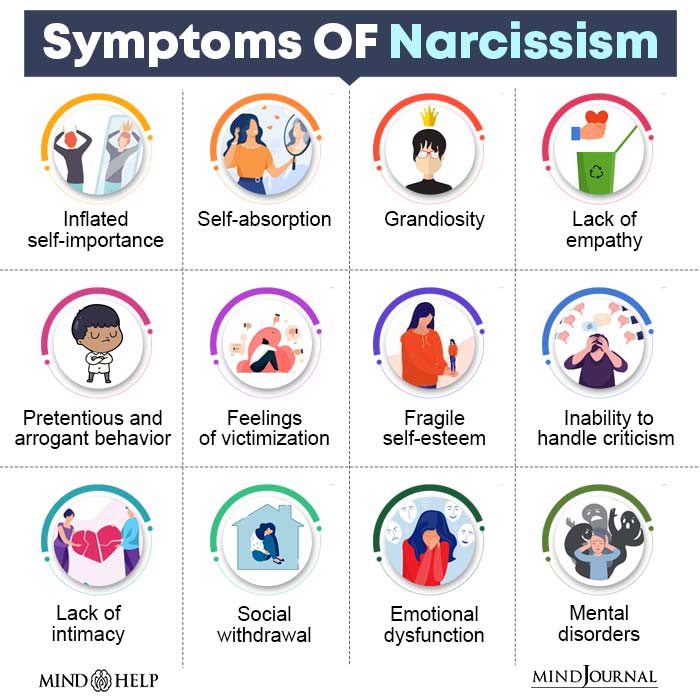Do you know someone who believes they’re better than everyone else? Do they exhibit a sense of grandiosity, superiority, and an inflated sense of self-importance? They may have a God complex. Let’s explore what is a God complex, God complex meaning, causes and ways to overcome it.
What is a god complex meaning?
God complex meaning: A god complex is a psychological condition in which a person believes they are superior to others and have special powers or abilities.
The individual may believe that they are all-powerful and invincible, with complete control over their surroundings. This is what is a God complex.
This belief can lead to god complex symptoms such as arrogance, narcissism, and a sense of entitlement. It can also make it difficult for people with a god complex to form healthy relationships and function in society.
God complex is a type of personality disorder that is often associated with narcissism, which is a personality trait characterized by grandiosity, self-importance, and a lack of empathy for others.
This attitude can be dangerous, not only for the person with the God complex but also for those around them.
Related: Understanding Superiority Complex Better
Characteristics traits of people with God complex

To better understand what is a God complex and God complex meaning, we need to delve into its underlying characteristics. People with a God complex often exhibit certain behaviors, including:
1. A sense of superiority
People with a God complex believe that they are better than everyone else and that they are the only ones who can make things happen. They may exhibit arrogant behavior and believe they deserve special treatment.
2. An inflated sense of self-importance
They believe that they are the most important person in any situation, and that everyone else should bow down to them.
3. A lack of empathy
People with a God complex often have a hard time understanding or caring about the feelings of others.
4. A need for control
They feel the need to control everything around them, including people, situations, and events.
5. A belief in their own infallibility
People with a God complex believe that they are always right and that they cannot make mistakes.
6. Delusions of grandeur
They may believe they have special powers or abilities.
7. Difficulty forming relationships
They may have difficulty forming healthy relationships because they believe they are superior to others.
8. Narcissism
They may be obsessed with themselves and their own importance.
9. A sense of entitlement
They may believe that they deserve special privileges and that the rules don’t apply to them.
God complex meaning in schizophrenia
Schizophrenia God complex is a subtype of delusion that can occur in people with schizophrenia. It is characterized by a false belief that one is God or has god-like powers.
People with Schizophrenia God complex delusion may believe that they are invincible, have special abilities, or that they are on a mission to save the world. The delusion may also involve a belief that one is being controlled by God or that God is communicating directly with them.
Schizophrenia God complex can be very distressing for the individual experiencing it and can lead to significant impairment in their daily functioning. Treatment for schizophrenia God complex typically involves antipsychotic medication and therapy.
Now that we know about God complex meaning, let us understand how this condition manifests.
How God complex manifests itself
The God complex can manifest itself in a variety of ways. For example, some people with a God complex may become obsessed with power and control, often seeking positions of authority and dominance.
They may also become obsessed with their own image, spending large amounts of time and resources on their appearance, reputation, and public perception.
Others may exhibit more extreme behaviors, such as delusions of grandeur, believing that they have special powers or abilities that others do not possess. They may also become convinced that they are invincible, taking unnecessary risks and putting themselves and others in danger.
People with a God complex may also exhibit a lack of empathy, failing to recognize or care about the feelings of others. They may be manipulative and controlling, using others for their own gain and discarding them when they are no longer useful.
They may also be prone to anger and aggression, lashing out at others when their sense of superiority is challenged.
Related: The Handbook Of Narcissistic Self-Worship: The 10 Narcissistic Commandments
Causes of God complex
To better understand God complex meaning, we need to explore the underlying causes.
There is no single cause of a God complex, and the condition can develop for a variety of reasons. Here are some common causes that may contribute to the development of a God complex:
1. Childhood experiences
Childhood experiences, such as a lack of attention or praise from parents or caregivers, can contribute to a need for validation and a sense of superiority.
2. Trauma
Traumatic experiences, including childhood trauma, such as abuse or neglect, can lead to feelings of powerlessness and a need for control.
3. Personality traits
Certain personality traits, such as narcissism, can contribute to a God complex. People who are naturally inclined to seek attention and admiration may develop a God complex as a way to achieve these goals.
4. Success and achievement
Success and achievement can be a double-edged sword. While they can boost self-esteem and confidence, they can also create a sense of entitlement and invincibility.
5. Mental health conditions
Some mental health conditions, such as bipolar disorder or schizophrenia, can contribute to a God complex. People with these conditions may experience delusions or hallucinations that reinforce their sense of superiority and invincibility.
It’s important to note that a God complex is not always caused by a single factor, and multiple factors may contribute to its development. Additionally, not everyone who experiences these factors will develop a God complex.
A qualified mental health professional can help diagnose and treat the condition and identify the underlying causes.
How to identify someone with a god complex
Now that we know God complex meaning, let’s explore how to spot it in ourselves or someone else. Here are some god complex symptoms that you can help you find out if someone has a god complex:
- They frequently think rules don’t apply to them. They expect exceptions and special treatment.
- They have an inflated sense of self-importance and consider themselves superior to others. This is one of the most basic god complex symptoms.
- They take credit for others’ accomplishments and ideas as if they were their own.
- They expect others to revolve around them and cater to their needs and wants.
- They have difficulty forming equal partnerships and relationships. They want to control and micromanage others.
- They speak in a condescending or patronizing manner towards others, acting as if others are beneath them.
- They become angry or enraged easily when others do not meet their unrealistic expectations.
- They manipulate or exploit others for personal gain, seeing them as a means to an end rather than as full human beings.
- They refer to themselves using grandiose terms like “god” or “divine” in a serious manner, not just figuratively.

The key god complex symptoms are an inflated sense of self-importance and superiority, accompanied by a lack of empathy for others and difficulty forming equal relationships. Someone with a god complex truly sees themselves as above the rules and beyond reproach.
Related: Narcissism Driven By Insecurity: 16 Signs To Watch Out For
So if several of these god complex symptoms, behaviors and thought patterns apply, it may indicate they have some elements of a god complex. Of course, a mental health professional can make a more definitive assessment.
How to overcome a god complex
Wondering how someone can cope with this condition? Here are some ways to overcome a god complex:
1. Be aware of your thoughts and behaviors
Pay attention to the way you think about yourself and others. Are you constantly comparing yourself to others and putting yourself on a pedestal? Do you believe you deserve special treatment? If so, you may have a god complex.
2. Challenge your beliefs
Ask yourself if your beliefs about yourself are really true. Are you really better than everyone else? Do you really deserve special treatment? It’s important to be realistic about your strengths and weaknesses.
3. Be humble
It’s important to be humble and to recognize that you’re not perfect. Everyone makes mistakes. Everyone has flaws. It’s important to be able to admit your mistakes and learn from them.
4. Develop empathy
Try to understand the feelings of others. Put yourself in their shoes and try to see things from their perspective. It’s important to be able to empathize with others in order to build healthy relationships.
5. Seek therapy
Talking to a mental health professional can help identify distorted thinking patterns, uncover underlying trauma or insecurities, and teach healthier ways of relating to others. Medication in severe cases may also be necessary.
6. Practice self-reflection and self-awareness
Be willing to recognize negative behaviors and thoughts, and see how they impact others. Keep a journal to gain insight.
7. Apologize and make amends
Reach out to people you have hurt by admitting fault, expressing regret and asking for forgiveness. This can help repair damaged relationships.
8. Engage in volunteer work or service
Helping others who are less fortunate can provide a healthy perspective and shift your focus from yourself.
9. Set ego aside and learn humility
Give up the need to feel superior. Accept that you don’t have all the answers and are not above others.
10. Practice gratitude
Take time to appreciate small things in life, which can reduce cravings for significance and admiration.
11. Limit exposure to praise and admiration
Too much glorification can reinforce an inflated ego. Avoid seeking praise and fishing for compliments, whether on social media or in real life.
12. Work on self-confidence separate from superiority
Seek to build self-esteem from within, rather than needing to feel above others. Focus on pursuing your passions and hobbies.
With a willingness to change unhealthy patterns, people with god complex traits can experience personal growth and form healthier, more equal connections with others.
Takeaway

God complex meaning refers to a dark part of the human psyche born from deep-seated wounds and ego defenses. But with awareness, treatment and a commitment to change, even those with the most inflated god complex can regain their humanity.
If you suspect that you or someone you know has a God complex, it is important to seek professional help to diagnose and treat the condition. With the right treatment and support, people with a God complex can learn to develop a more realistic sense of self and live a healthier, happier life.
Related: 6 Ways To Deal With Arrogant People
Frequently Asked Questions (FAQs):
What are signs of a god complex?
Signs of a god complex include superiority, lack of empathy, inflated sense of self-importance, need for control, and belief in infallibility.
What is a god complex called?
A god complex is also known as grandiose delusions or delusions of grandeur in clinical psychology.
Is god complex a good thing?
No, a God complex is not a good thing. It can be dangerous and lead to negative consequences for the individual and those around them.









Leave a Reply
You must be logged in to post a comment.